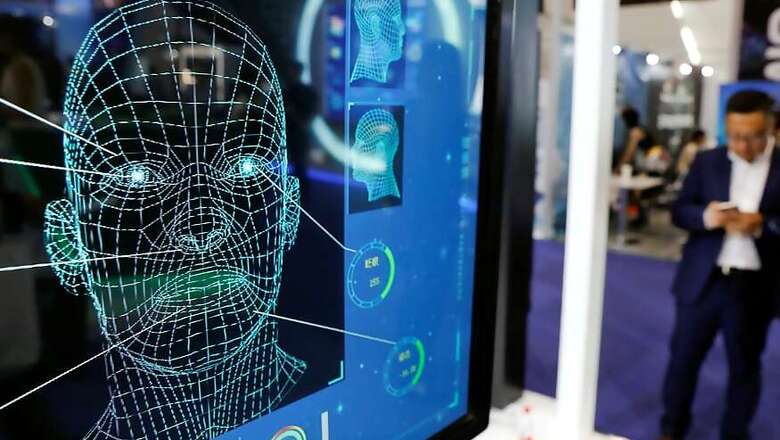
views
In an ambitious plan to curb soaring crime rates, the government is in the works of building the world’s largest facial recognition system – a centralized database – accessible to police across all states of the country that would match images from the network of CCTV cameras against a database encompassing criminal records.
Authorities in many states, including Andhra Pradesh and Punjab, had adopted the facial recognition technology in 2018 to fight crime.
According to a report in the CNN, this proposed network - as laid out in a detailed 172-page document in the National Crime Records Bureau - will encompass mug shots of criminals, passport photos and images collected by agencies such as the Ministry of Women and Child Development.
This new facial recognition pattern will play a “very vital role in improving outcomes” of solving crime cases and help in “detect crime patterns” while also aid in crime prevention, the documents seen by CNN stated.
This unnamed project will also enable the police to initiate searches based on photos uploaded from newspapers, images in the public domain and even give access to artist sketches of suspects. It would recognize faces on closed-circuit cameras and "generate alerts if a blacklist match is found," according to the tender document.
Security forces would be equipped with hand-held mobile devices enabling them to capture a face in the field and search it instantly against the national database, through a dedicated app.
The National Crime Records Bureau requested bids from companies, which had until October 11 to submit their proposal to build this project.
While the exact number of companies who submitted bids for this national facial recognition system is not known, 80 representatives of vendors reportedly participated in a pre-bid meeting, which took place in the National Crime Records Bureau's Delhi office at the end of July, the CNN report added. Several foreign companies were also a part of it.
However, the involvement of foreign companies in setting up such a critical network of India’s security apparatus is likely to raise issues of national security.
IBM (IBM), Hewlett-Packard Enterprise (HPE) and Accenture (ACN) are among the companies that have shown interest in the project, Sivarama Krishnan, who leads cybersecurity at PricewaterhouseCoopers India, said.
For privacy advocates, the proposal is also perturbing as they worry about the system becoming a tool of social policing and even exerting control on certain communities. “India doesn’t have a data protection law and it’s not planning to adopt a legal framework for the new facial recognition system – this would mean the project will be devoid of safeguards,” Apar Gupta of the Internet Freedom Foundation was quoted by CNN.
China has already taken a lead in adopting facial recognition technology, using it for airport security, crime prevention and traffic control. The technology not only assists law enforcement officers and other authorities, but also motivates people to “behave well, promoting good civic habits”.
This has led to fears that it will become a method to crack down on dissent, as has been seen in Hong Kong, where protestors have routinely covered their faces, blocked or smashed closed-circuit television cameras, and communicated over encrypted apps to conceal their identities.
India’s crime rate has been rising at alarming rates, with the poor fringes of urban centres being the worst-hit areas. In 2016, there were 709.1 offenses per 100,000 people in 19 big cities, compared to the national average of 379.3, according to the most recent official figures. Creating a centralised platform with a national database of criminal records is expected to help tackle this.

















Comments
0 comment